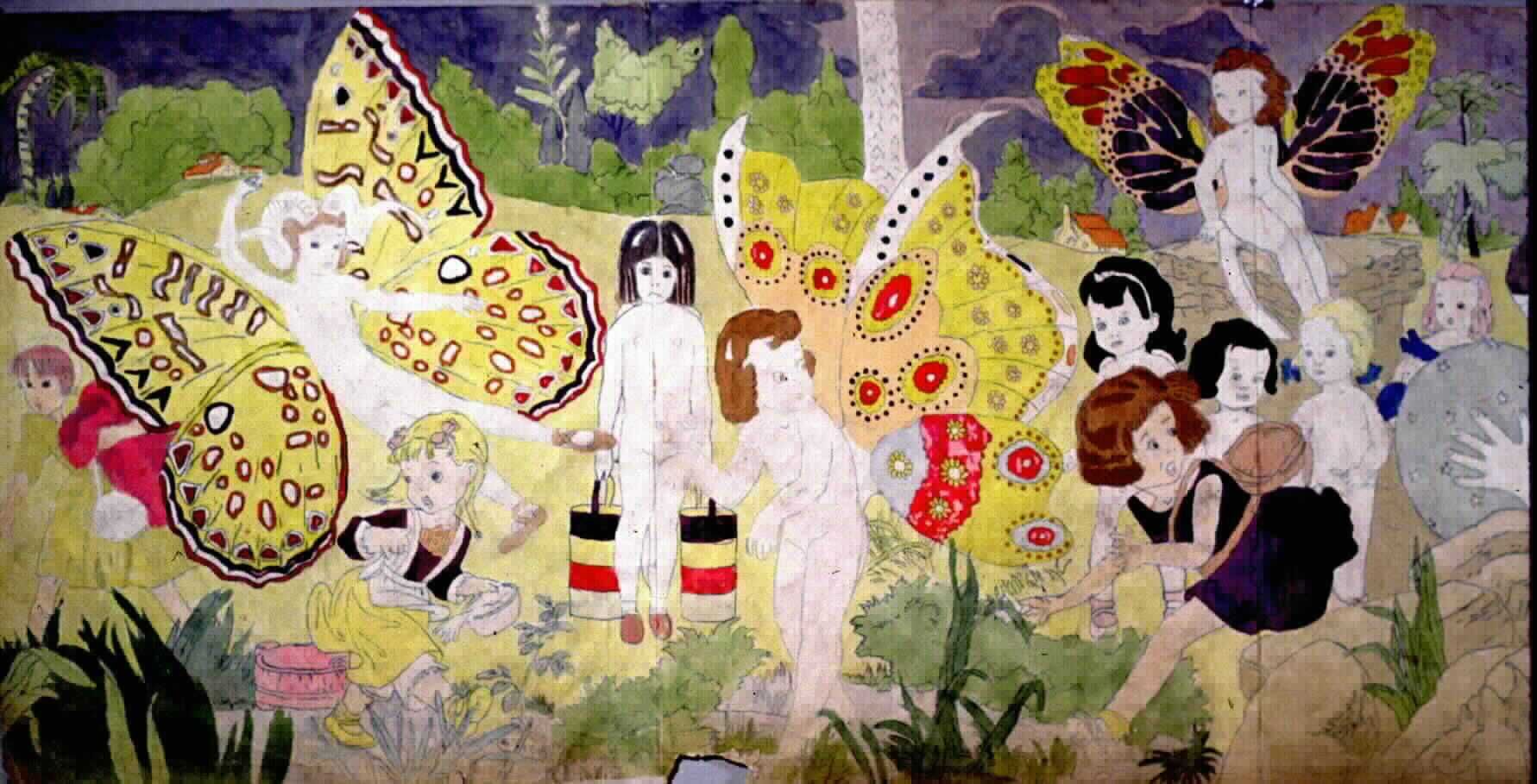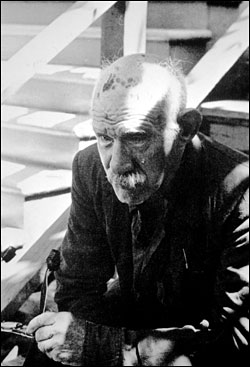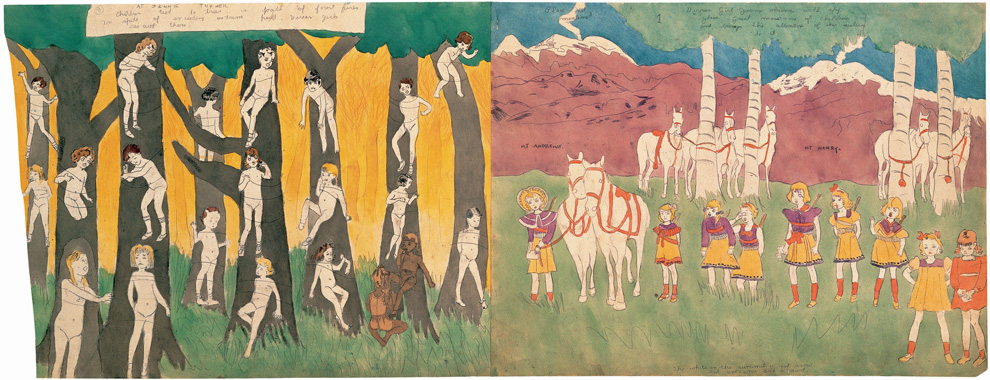Considering the work of Henry Darger, it strikes me that we live in a world full of secrets. Occasionally, one gets out.
It was on the day after his birthday, and the last day of his life, that the reclusive hospital janitor’s extraordinary secret life was discovered…
 Illustration from The Story of the Vivian Girls by Henry Darger (Click to enlarge)
Illustration from The Story of the Vivian Girls by Henry Darger (Click to enlarge)
Henry Darger was born in 1892, and after his parents died at a young age, he was raised in an “Asylum for Feeble Minded Children”. At the asylum he was subject to harsh punishments and forced labor and ultimately escaped a year before the asylum was investigated for abuse. Once free, he found work as a janitor, attended daily Catholic Mass and lived a quiet solitary life in which almost no one knew him or noticed him.
On April 13th, 1973, the last day of Henry Darger’s life, landlord (and accomplished photographer), Nathan Lerner opened the door to the small second story Chicago apartment where Darger had lived in solitude for 40 years. At that time, Darger had been moved to the St. Augustine Mission because of his failing health. Among Darger’s personal affects, Lerner uncovered several astounding works of literature and hundreds of works of art, all created in secret by Henry Darger.
Among these were:
- a 15,000 page work of fantasy fiction called The Story of the Vivian Girls, in What is Known as the Realms of the Unreal, of the Glandeco-Angelinian War Storm Caused by the Child Slave Rebellion;
- a 5,000 page autobiography entitled The History of my Life;
- a 10-year daily weather journal;
- assorted diaries;
- a 10,000 page novel entitled Crazy House
- Several hundred original illustrations and water color paintings depicting the plight of young children against oppressive and evil adults.
Darger’s images were often violent, even brutal, displaying the torture and murder of the children in his stories. They can also be very colorful, playful, sincere and innocent. Darger surely drew upon his life experiences in the asylum. His unique style has given rise to the term “Dargerism”. The American Folk Art Museum calls Darger “one of the most significant artists of the twentieth century”.
Nathan Lerner, Darger’s landlord, “was inextricably bound up in the history of visual culture in Chicago” (according to the New York Times), and instantly recognized the artistic merit of Darger’s compositions. It was a truly remarkable coincidence that someone, such as Lerner, should be the first to see Darger’s secret works. Under most other circumstances all of his artwork and stories would surely have been lost forever. Nathan Lerner, and his wife Kiyoko, gained the rights to Darger’s estate and have brought the world’s attention to it. Since Lerner’s discovery, Darger’s artwork has achieved wide acclaim as “outsider art“. His stories and paintings (and mental status) have become the subject of books and documentary films.
In The Story of The Vivian Girls, we come to learn that the Earth is actually orbiting a larger planet, much as the moon orbits the Earth. It is upon this larger world that Darger’s story takes place. I believe that for Darger, the inner fantasy world was larger than his reality, and his reality simply orbited this other, more important fantasy world. In Darger’s world, abused children are avenged and innocence conquers all.
Darger’s body now rests in All Saints Cemetery in Des Plaines, Illinois, in a plot called “The Old People of the Little Sisters of the Poor Plot.” Darger’s modest headstone is inscribed “Artist” and “Protector of Children.”
Several examples of Darger’s larger works (click to enlarge):
More:
Henry Darger – American Folk Art Museum
In the Realms of the Unreal – Documentary Trailer
In the Realms of the Unreal – Part 1 on PBS
Vivian Girls Tattoo on The Awesome Summer Journal
Also, take a look at these Darger-inspired works by Ian Brownlee, here on SpillSpace






